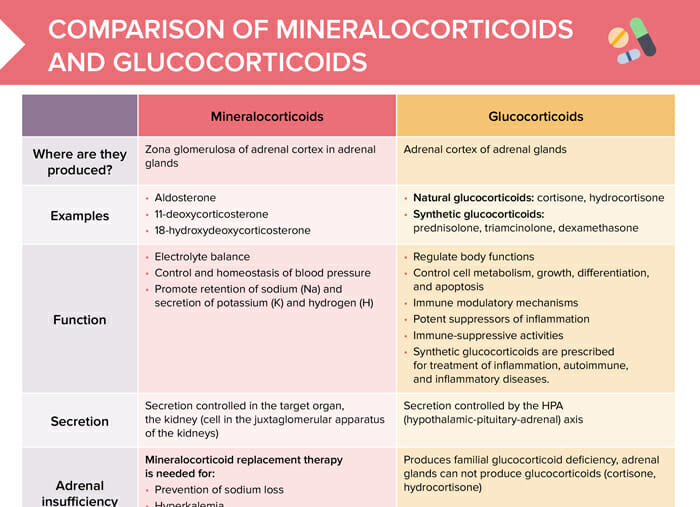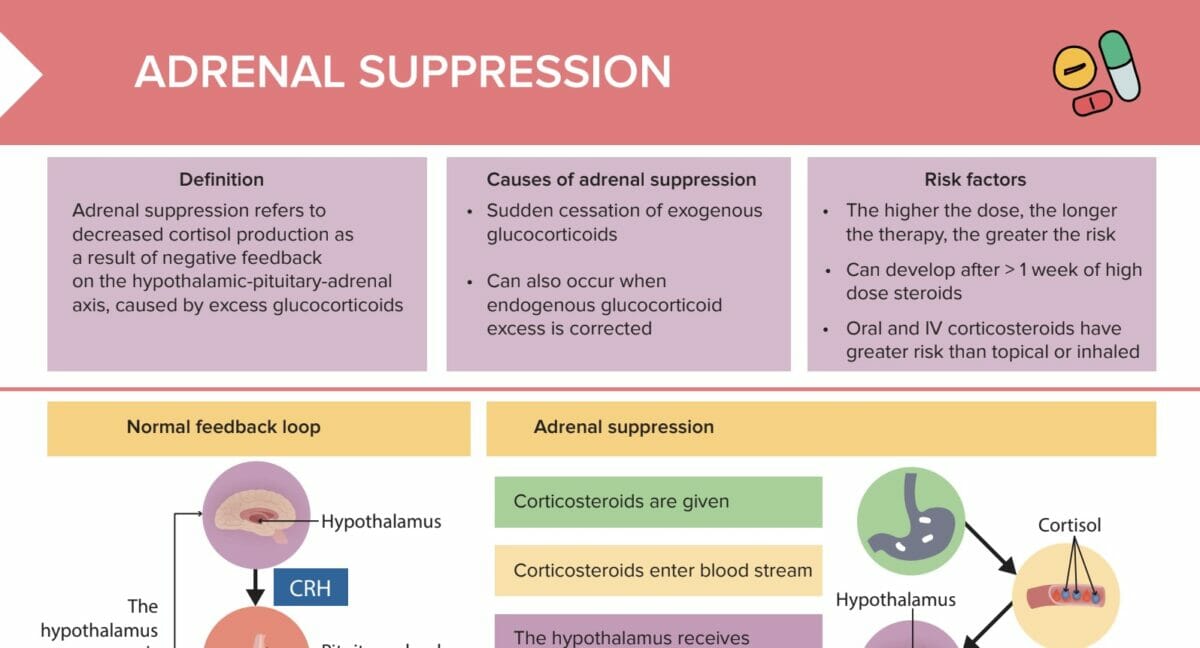What is adrenal suppression?
Adrenal suppression refers to decreased cortisol production as a result of negative feedback on the hypothalamic-pituitary-adrenal axis, caused by excess glucocorticoids.
What causes adrenal suppression?
The most common cause of adrenal suppression is sudden cessation of exogenous glucocorticoids. It can also occur when endogenous glucocorticoid excess is corrected.
Risk factors for adrenal suppression
Risk factors for adrenal suppression include:
- > 1 week of high-dose steroids
- Oral and IV corticosteroids (higher risk than topical or inhaled)
The higher the corticosteroid dose and the longer the therapy, the greater the risk of adrenal suppression.
How do steroids cause adrenal suppression?
In a normal feedback loop, the hypothalamus responds to the level of cortisol.
In adrenal suppression, when corticosteroids are given and enter the bloodstream, the hypothalamus receives the message that there are adequate corticosteroid levels. It therefore does not release ARH and ACTH, which would “send the message” to the adrenal glands to make their own glucocorticoids. The adrenal glands therefore become inactive.
What are adrenal suppression symptoms?
Symptoms of adrenal suppression include:
- Fatigue
- Hypotension
- Weight loss and decreased appetite
- Irregular (or absent) menses
- Salt cravings
- Hypoglycemia
- Body hair loss
- Nausea and vomiting
Adrenal suppression complication: acute adrenal insufficiency
Adrenal suppression can lead to adrenal insufficiency, a potentially life-threatening side effect of corticosteroid use. When adrenal insufficiency occurs, the adrenal gland atrophies and fails to make corticosteroids. Exogenous glucocorticoids may be needed.
Adrenal suppression test
The primary test for adrenal insufficiency is the ACTH stimulation test. It measures the response of the adrenal glands to adrenocorticotropic hormone (ACTH). Blood cortisol levels are measured before and after an injection of synthetic ACTH. If the adrenal glands don’t produce enough cortisol in response, it suggests adrenal insufficiency.
Patient education about tapering glucocorticoids
- Stress importance of following a tapering regimen. The client should not abruptly stop medications.
- Suddenly stopping the medications can cause body aches or fatigue. Explain the instructions to gently encourage glands to produce corticosteroids again by tapering the medication use.
- In some cases of long-term, high dose steroid use, recovery can take months. Your client should be aware of acute symptoms requiring follow-up.

